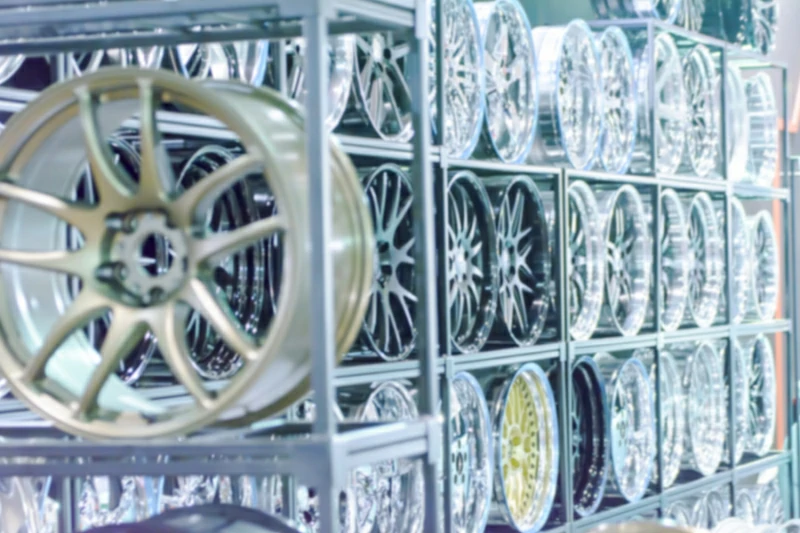Introduction
Aluminum Die Casting, a widely employed manufacturing process, plays a pivotal role in various industries, offering a versatile solution for producing intricate components at scale. As companies increasingly seek efficient high-volume manufacturing, understanding the key considerations for optimizing Aluminum die-casting processes becomes paramount.

Fundamental Principles of Aluminum Die Casting
Aluminum Die Casting involves the injection of molten Aluminum into a mold to produce complex and high-precision parts. The choice of aluminum alloys, mold design, and tooling significantly impact the success of the process.
Explanation of the Die Casting Process
The process begins with the melting of Aluminum, which is then injected into the die under high pressure. This enables the production of detailed and geometrically complex components with remarkable precision.
Overview of Commonly Used Aluminum Alloys
Aluminum Die Casting involves the use of specific alloys, such as ADC12 and A380, chosen based on their mechanical properties, thermal conductivity, and suitability for the intended application.
Importance of Mold Design and Tooling
Precision in mold design and high-quality tooling are critical for ensuring the repeatability and accuracy of the casting process.
Key Considerations for Optimization
Optimizing Aluminum die-casting processes is essential for achieving efficiency in high-volume manufacturing. Several key considerations must be addressed to enhance the overall performance of the process.
Temperature and Metal Flow Control
Achieving and maintaining optimal metal temperatures during the casting process is crucial. Precise control over metal flow within the mold ensures the production of defect-free components.
Alloy Selection for High-Volume Production
Careful consideration of aluminum alloy selection is imperative for meeting performance requirements while balancing production costs. This decision significantly influences the mechanical properties and overall quality of the final product.
Mold Design and Tooling Considerations
The intricacies of mold design and the selection of appropriate tooling materials directly impact the efficiency and consistency of the Aluminum die-casting process. Investing in precision at this stage pays dividends in manufacturing reliability.
Quality Control Measures
Implementing robust quality control measures is vital to detect and prevent defects during the casting process. In-process monitoring and post-casting inspections ensure that components meet the required specifications.
Advanced Technologies and Innovations
As technology continues to advance, the Aluminum die-casting industry embraces innovations that further enhance efficiency and sustainability.
Automation in Aluminum die-casting
The integration of automation technologies in Aluminum die-casting processes has revolutionized high-volume manufacturing. Automation not only improves efficiency but also ensures consistent quality and reduced production costs.
Environmental and Sustainability Considerations
In response to growing environmental concerns, Aluminum die-casting suppliers are adopting eco-friendly practices. Recycling of aluminum scrap and energy-efficient processes contribute to a more sustainable and environmentally responsible industry.
Common Challenges and Solutions
While Aluminum Die Casting offers numerous benefits, challenges may arise in the production process. Understanding and addressing these challenges is crucial for maintaining product quality and efficiency.
Addressing Porosity and Defects
Porosity remains a common challenge in Aluminum Die Casting. Employing advanced mold designs and optimizing process parameters help mitigate porosity issues, ensuring the production of high-quality components.
Managing Production Variability
High-volume production often faces challenges related to consistency. Implementing statistical process control (SPC) techniques and real-time monitoring systems enables manufacturers to manage and control production variability effectively.
Case Studies
Real-world examples illustrate the successful implementation of optimization strategies in Aluminum Die Casting.
Case Study 1: Precision Engineering for Complex Geometries
A leading Aluminum die-casting supplier in China successfully employed advanced mold design and high-precision tooling to produce intricate components for aerospace applications. The result was a reduction in defects and an improvement in overall production efficiency.
Case Study 2: Alloy Innovation for Enhanced Performance
An automotive parts manufacturer in the United States strategically selected a specialized aluminum alloy for high-volume production. This decision not only met stringent performance criteria but also optimized costs, showcasing the importance of alloy selection.
Lessons Learned and Best Practices
Drawing insights from the case studies, several lessons learned and best practices emerge, providing valuable guidance for those seeking to optimize Aluminum Die Casting processes.
Lesson 1: Prioritize Precision in Mold Design
Precision in mold design is foundational to successful Aluminum Die Casting. Investing in advanced design techniques and high-precision tooling improves product quality and reduces defects.
Lesson 2: Strategic Alloy Selection
Carefully choosing the right aluminum alloy is crucial. Strategic alloy selection ensures that the material properties align with the application requirements, balancing performance and cost-effectiveness.
Lesson 3: Embrace Automation for Consistency
The integration of automation technologies enhances consistency in high-volume manufacturing. Automated systems contribute to improved efficiency, reduced variability, and enhanced overall quality.
Lesson 4: Commitment to Environmental Responsibility
Incorporating eco-friendly practices, such as recycling and energy-efficient processes, not only aligns with environmental concerns but also contributes to long-term sustainability and market competitiveness.
Recommendations for Excellence
As we conclude this exploration of optimizing Aluminum die-casting processes, we offer specific recommendations for manufacturers aiming to excel in high-volume production.
Conclusion
Excellence in Aluminum Die Casting requires a holistic approach that encompasses precision in mold design, strategic alloy selection, automation, environmental responsibility, robust quality control, and continuous process optimization. By incorporating these recommendations into their manufacturing practices, companies can position themselves for success in high-volume production, delivering high-quality components efficiently and competitively.


